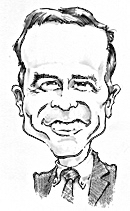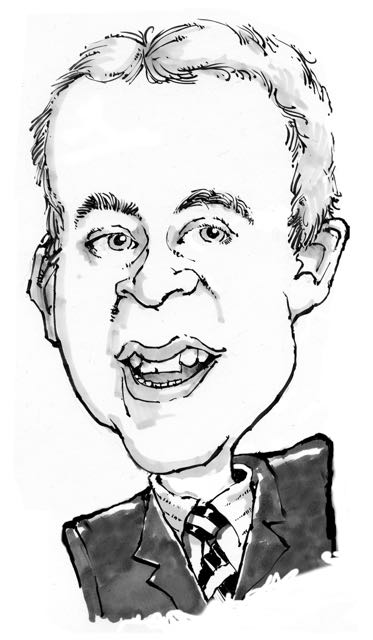“Can we start our school board meetings with a prayer?”

By Clint Campion of Sedor, Wendlandt, Evans & Filippi, LLC
Part four of a four-part review of the freedom of expression in schools.
In this installment, we focus on freedom of expression for school board members.
Does a school board violate the Constitution if it opens its meetings with a prayer? What if the prayer does not suggest a particular faith?
In 2014, the U.S. Supreme Court decided that a town board did not violate the Constitution by opening its meetings with a prayer. For many years, the Town of Greece, which borders Lake Ontario in upstate New York, would start its board meetings with a moment of silence. Beginning in 1999, a newly elected town supervisor started inviting local clergy members to deliver an invocation at the beginning of the town board meetings. Greece did not review the prayers or provide any guidance about the content of the prayers in advance of the board meetings to prevent interference with the free speech rights of the clergy. Most of the prayers included civic and religious themes.
Some of the invited clergy led prayers that were obviously Christian. For example, a minister opened a meeting with: “Lord, God of all creation, we give you thanks and praise for your presence and action in the world. We look with anticipation to the celebration of Holy Week and Easter. It is in the solemn events of next week that we find the very heart and center of our Christian faith. We acknowledge the saving sacrifice of Jesus Christ on the cross. We draw strength, vitality, and confidence from his resurrection at Easter…. We pray for peace in the world, an end to terrorism, violence, conflict, and war. We pray for stability, democracy, and good government in those countries in which our armed forces are now serving, especially in Iraq and Afghanistan…. Praise and glory be yours, O Lord, now and forever more. Amen.”
Following the invocation, the town supervisor would present the clergy member with a plaque. From 1999 to 2007, all of the invited clergy who led the invocation at the town board meetings were Christian even though ministers of any persuasion, including atheism, could give the invocation. Two Greece residents who attended board meetings objected to the prayers. In response, the town board invited a Jewish layman, the chairman of the local Baha’i temple, and a Wiccan priestess to deliver prayers at the opening of its board meetings. Despite the inclusion of other faiths, the two residents sued Greece in federal court. They claimed Greece violated the First Amendment’s Establishment Clause because the invocation policy preferred Christians over other faiths. The Establishment Clause of the First Amendment prohibits any governmental agency, including school boards, from forcing its citizens to participate or support any religion.
Justice Anthony Kennedy wrote the opinion for the U.S. Supreme Court in Town of Greece, New York v. Galloway, which concluded that Greece did not violate the Establishment Clause. Justice Kennedy relied on the long-standing “legislative prayer” exception to the Establishment Clause. Justice Kennedy explained that the principal audience for invocations was not the public but rather” lawmakers who may find that a moment of prayer or quiet reflection sets the mind to a higher purpose and eases the task of governing.” Justice Kennedy’s closed his opinion in Town of Greece with these words: “ceremonial prayer is but a recognition that, since this Nation was founded and until the present day, many Americans deem that their own existence must be understood by precepts far beyond the authority of government to alter or define and that willing participation in civic affairs can be consistent with a brief acknowledgment of their belief in a higher power, always with due respect for those who adhere to other beliefs.”
Justice Kennedy’s opinion did not end litigation in Alaska over invocations for legislative bodies. In 2017, the ACLU of Alaska sued the Kenai Peninsula Borough over its invocation policy, which allows for an invocation at the beginning of assembly meetings only from someone who is part of a religious group with an established presence in the Kenai Peninsula Borough or chaplains that serve in the Borough. The policy was adopted following an invocation at an Assembly meeting in 2016 that included a message of Satanism. This lawsuit is still pending.
Justice Kennedy’s opinion also did not resolve whether the “legislative prayer” exception applies to school board meetings. The U.S. Supreme Court has resolved other issues of school prayer in public schools under the Establishment Clause. In 1962, it determined that the official school prayer adopted by the Board of Regents for the State of New York violated the Establishment Clause in Engel v. Vitale. That prayer read: “Almighty God, we acknowledge our dependence on Thee, and beg Thy blessings upon us, our teachers, and our country.”
In 1992, in Lee v. Weisman, the U.S. Supreme Court determined that a school could not invite a clergy member to lead a prayer at a graduation. Justice Kennedy, who wrote the opinion for the court, explained that a rabbi-led prayer of less than one minute at a middle school graduation violated the Establishment Clause because the U.S. Supreme Court has made it clear that a school cannot persuade or compel a student to participate in a religious exercise.
Even though the U.S. Supreme Court has not resolved whether invocations or prayers at school board meetings violate the Establishment Clause, the United States Court of Appeals for the Ninth Circuit will soon decide whether a school board invocation policy violates the Establishment Clause in Freedom from Religion Foundation, Inc. v. Chino Valley Unified School District Board. The Chino Valley School Board appealed the decision of a U.S. District Court judge who found its school board meetings were “unconstitutional government endorsements of religion.” The Chino Valley policy allowed local clergy members to pray before school board meetings but did not require participation in the prayers. Some school board members went further than the policy allowed by reading Bible passages as part of the school board meeting.
The Supreme Court has established guidelines under the Establishment Clause for school prayer and legislative meetings but has not yet decided whether prayers at school board meetings violate the Establishment Clause. The Ninth Circuit’s upcoming decision on school board prayer may set guidelines for prayers at school board meetings in Alaska. In the meantime, school boards should keep in mind the free speech rights of those who appear at school board meetings and the limitations of the Establishment Clause.
Read the entire series on Freedom of Expression in Schools
Part one: “I pledge allegiance to [which?] flag …”
By John M. Sedor
Part two: Exceptions to student speech rights under Tinker
By Lea Filippi
Part three: Free Speech Rights of School Employees
By Allen Clendaniel
# # #
The views expressed here are the writer’s and are not necessarily endorsed by the Association of Alaska School Boards. AASB welcomes diverse perspectives and civil discourse. To submit a Guest Column for consideration, see our Guest Column Guidelines and email your 400-1000 word submission HERE.



